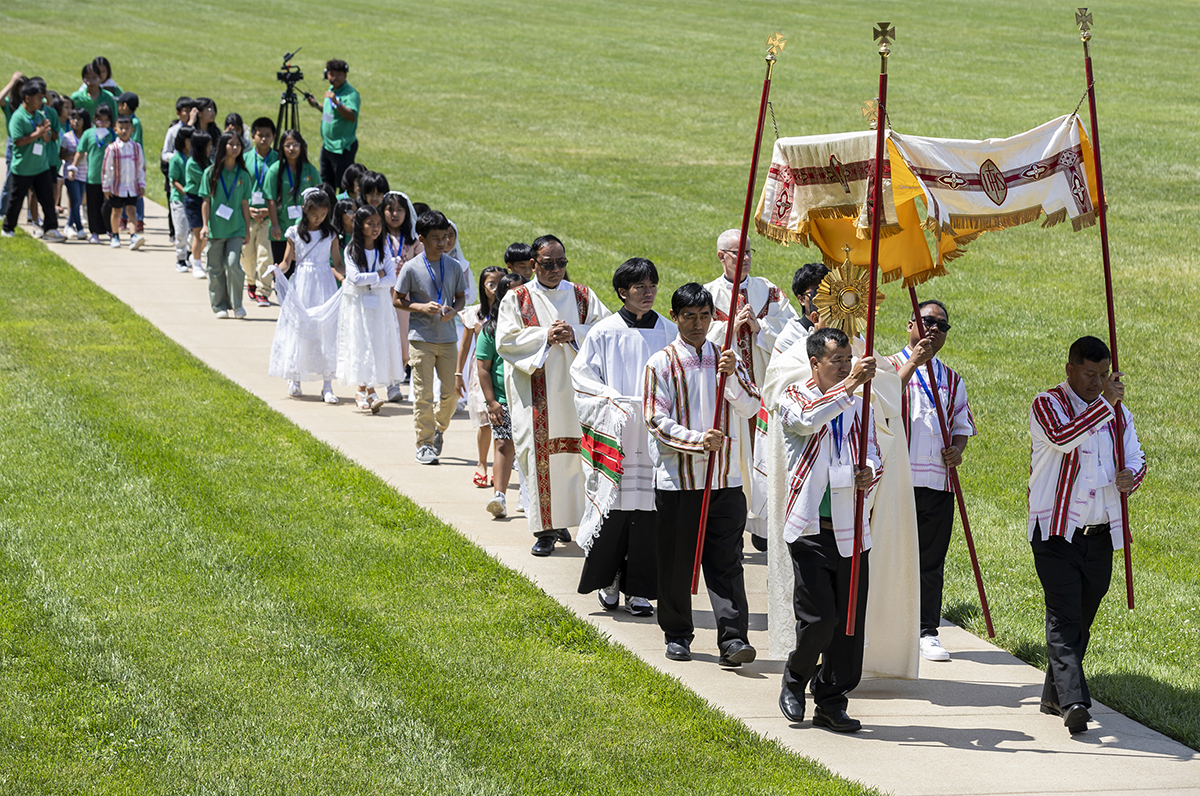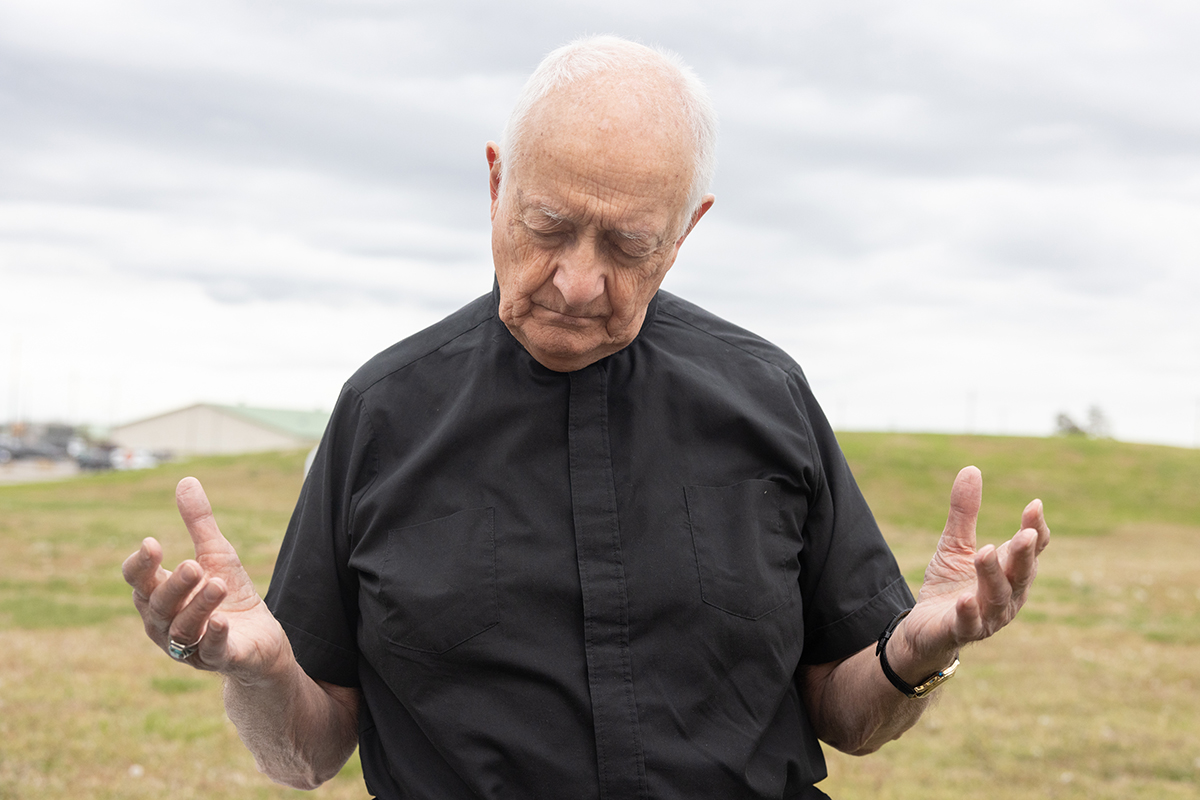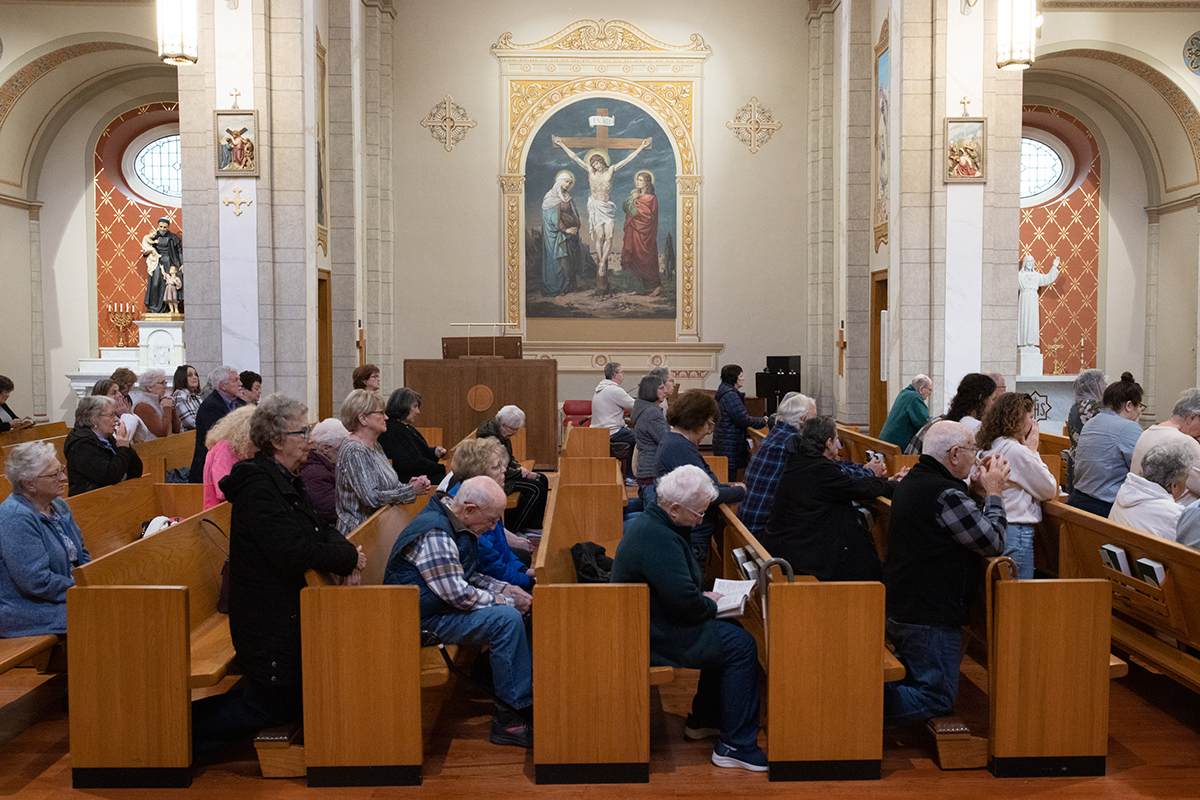Prayer vigils for Ernest Johnson stress the need to respect life
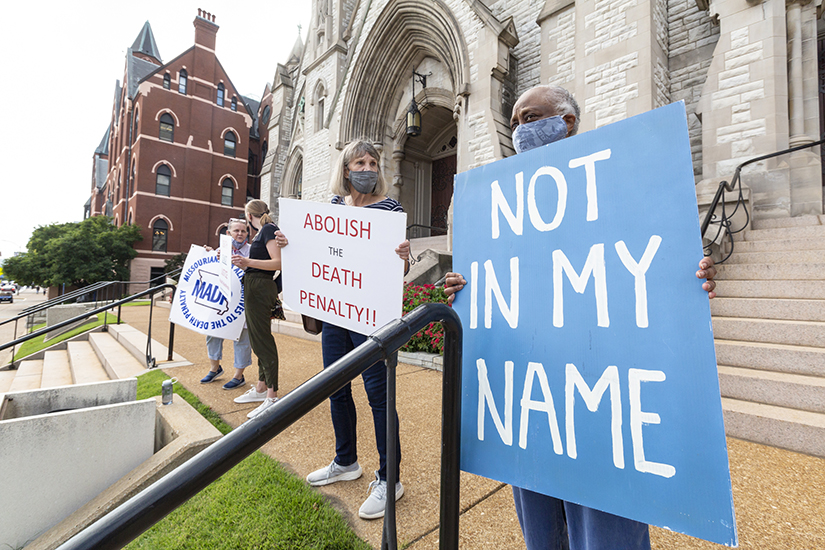
‘Sacredness of all human life’ cited in letter to Gov. Parson on behalf of death-row inmate
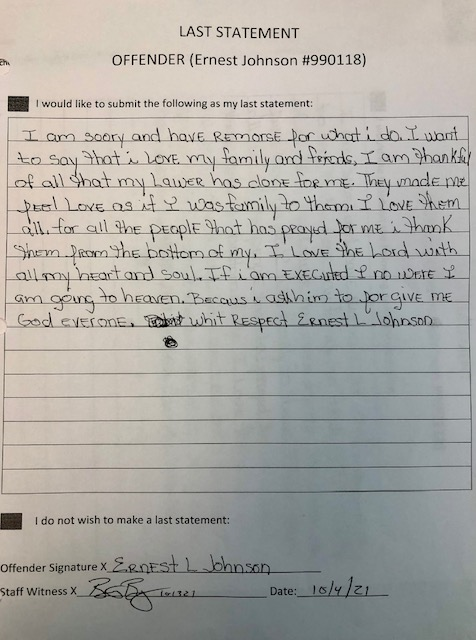
The need to respect all life was stressed repeatedly by Catholics who drew attention to the execution of Ernest Johnson. The Missouri death-row inmate was put to death at 6:11 p.m. Oct. 5.
“Every person is sacred because God created everyone and everything in goodness,” said Donna Walmsley, who attended a prayer vigil planned by the Missourians for Alternatives to the Death Penalty in St. Louis outside of St. Francis Xavier (College ) Church hours before the scheduled execution Oct. 5. “We, as followers of Jesus, have a responsibility to uphold the dignity of life of all people.”
Violence only brings about more violence, said Walmsley, who just moved to St. Peters from Springfield, Missouri, where she and her husband were members of Sacred Heart Parish.
Beatrice Parwatikar, a parishioner of the College Church parish, held a sign stating “Not in My Name.” She earlier said, “We need to stand against this, particularly in the month of pro-life, when this is not natural death. This is death by the state.”
Jesuit Father Daniel White, pastor of the College Church, said a prayer and noted that they gathered as God’s people unified against the inhumanity and injustice of the death penalty.
Johnson was convicted of three counts of first-degree murder in the 1994 deaths of Mary Bratcher, Mable Scruggs and Fred Jones, employees of a Casey’s convenience store in Columbia, Missouri.
Johnson’s attorneys claim he was denied his right to be free from cruel and unusual punishment as guaranteed by the U.S. Constitution, in that his rights were violated by imposing a sentence of death on a defendant with intellectual disability, contrary to the U.S. Supreme Court’s opinion in Atkins v. Virginia.
A busload of students from Rosati-Kain High School left the school in the afternoon Oct. 5 for a prayer vigil at the Eastern Reception, Diagnostic and Correctional Center in Bonne Terre where the execution was scheduled to occur at 6 p.m. The group was spearheaded by the students committed to pro-life, social justice and diversity issues and assisted by the Peace and Justice Commission of the archdiocese.
Elizabeth Goodwin, president of Rosati-Kain, said prior to arriving at the prison grounds that the girls, accompanied by faculty, will learn more about the execution and Church teaching, which instructs that the death penalty is inadmissible because it is an attack on the inviolability and dignity of the person (Catechism of the Catholic Chuch 2267).
“Our plan is to have programming focusing on Catholic social teaching, personal reflection, prayer and time for questions and answers,” Goodwin said.

Rosati-Kain students also traveled with the Peace and Justice Commission to El Paso, Texas, a couple of years ago to better understand the humanitarian crisis connected to immigration. The students attended a Mass celebrated on both sides of the U.S.-Mexican border. “We want our students to understand that pro-life is multiple issues, about the human dignity of each individual — the unborn, immigrants, people in poverty, victims of violence along with those on death row — and that all life is sacred,” Goodwin said.
Julia Michalski, a senior at Rosati-Kain, said that participating in the peaceful prayer service for life “means not only standing up for those who are oppressed, but giving them a voice so those in power will listen. This is very important to me because I believe everybody has a right to live comfortably and justly, and any violation of these basic human rights must be confronted. I am anticipating this experience to be powerful and prayerful, and the Rosati-Kain community, as well as other demonstrators, will feel deeply connected with both our faith and the ultimate goal of creating justice in our society.”
As Ernest Johnson was executed, Rosati-Kain students knelt in silent prayer at the site, while other students and faculty remained at school and prayed the Rosary in support.
On Sept. 27, the Vatican’s ambassador to the United States, writing on behalf of Pope Francis, sent a letter to Missouri Gov. Mike Parson requesting clemency for Johnson.
The request is not based on the facts and circumstances of his crime, or claims of his intellectual capacity, Archbishop Christophe Pierre wrote. One cannot argue that grave crimes deserve grave punishments, the letter stated.
Instead, he explained, Pope Francis “wishes to place before you the simple fact of Mr. Johnson’s humanity and the sacredness of all human life.”
Parson issued a statement on Oct. 4 that he would not halt the execution.
At a weekly Tuesday evening racial justice vigil outside the College Church, participants planned to pray for the victims and their families. They also intended to pray for Johnson and an end to the death penalty. “The death penalty is in opposition to the Church’s teaching,” said Christine Dragonette, director of social ministry at the College Church parish. “In this country, the death penalty impacts people of color and those with limited resources in particular.”
Sister Connie Probst, director of mission support for the Franciscan Sisters of Our Lady of Perpetual Help, said there’s a simple formula to being on death row in Missouri: “Neighborhood plus no money, plus no well-paid lawyer team, plus no paid experts, plus a person of color, equals public execution.”
Rita Linhardt of the Missouri Catholic Conference discussed a clemency application submitted by civic and religious leaders in the state and the importance of mercy in the case. She also referred to the apostolic nuncio’s letter to Parson in the name of Pope Francis citing the sacredness of all human life. The letter stated that Missouri has taken courageous stands for the dignity of life in its earliest and most vulnerable stage and “now would be an equally courageous recognition of the inalienable dignity of all human life.”


